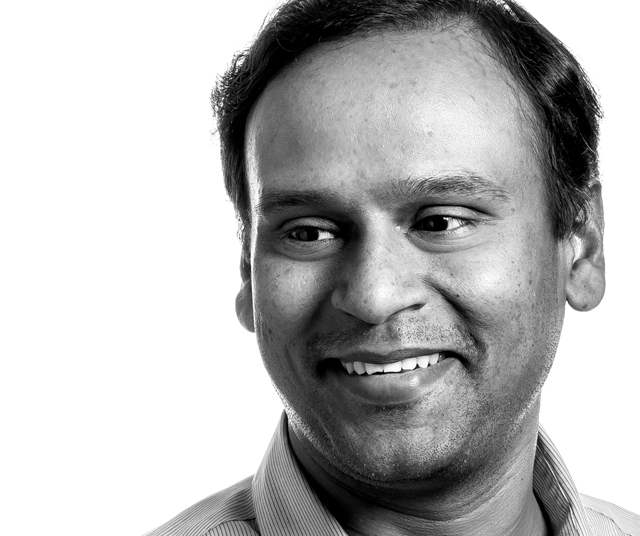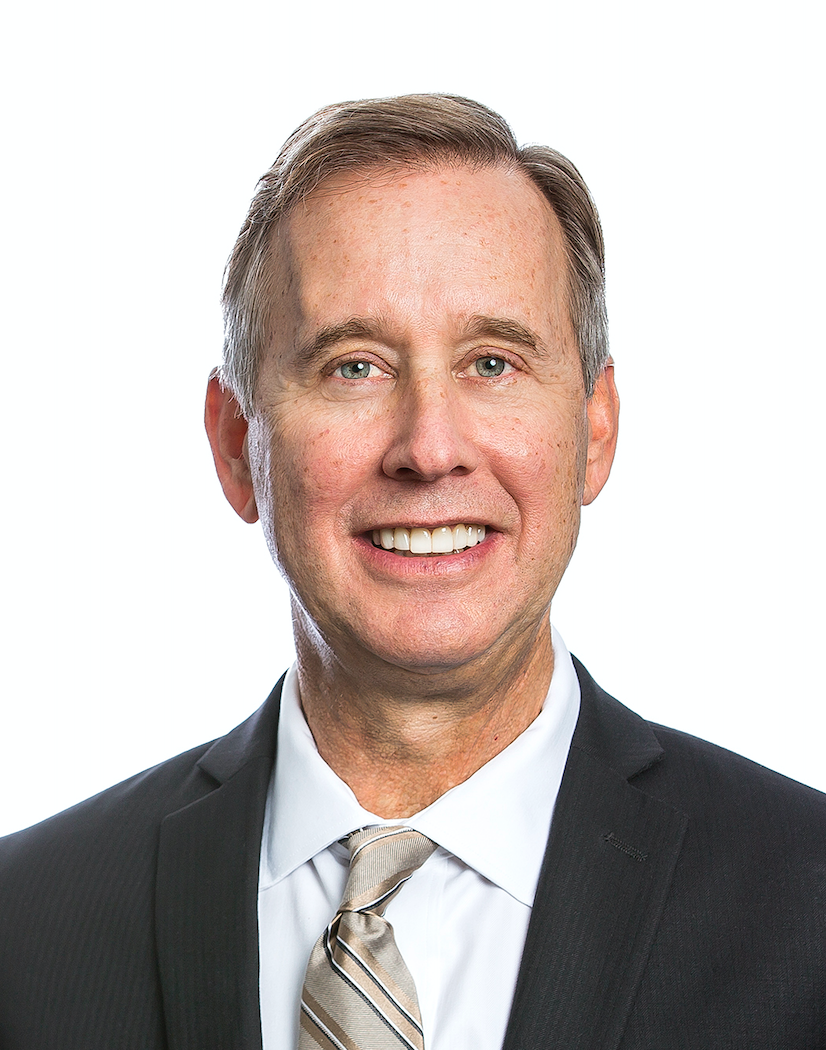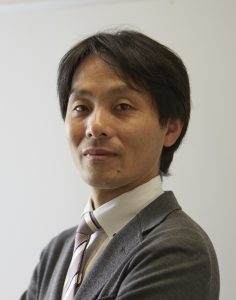Plenary lectures are invited 45minutes lectures to be held without other parallel activities. The lectures will be broad surveys of recent major developments in the neurorehabilitation field.
Oskar C. Aszmann
Medical University of Vienna
Title: Nerve Transfers in the Recovery of Function
Prof. Oskar C. Aszmann, born in Vienna, Austria. After a two year excursion into philosophy and biology Dr. Aszmann finished Medical School at the medical faculty of the University of Vienna (1994). He then went on to the Johns Hopkins University in Baltimore, Maryland where he learned the trade of peripheral nerve surgery from Prof. Lee Dellon and the basic science of peripheral nerve regeneration from Prof. Thomas Brushart. In 1998 he joined the Division of Plastic Surgery in Vienna where he was promoted the position of Associate Professor of Plastic and Reconstructive Surgery. Since 2006 he has entered a close collaboration with the company Otto Bock to explore the possibilities and limits of bionic reconstruction which has led to the establishment of a partly private/government funded Center for Extremity Reconstruction and Rehabilitation in 2012. This Center is being headed by Prof. Aszmann and has at its core interest the reconstruction and rehabilitation of patients with impaired extremity function. This goal is accomplished with a wide variety of surgical techniques of neuromuscular reconstruction alone or in combination with complex mechatronic devices. 2020 he has been given the position of Full Professor at the newly founded Department of Plastic and Reconstructive Surgery.
His research focuses on all aspects of reconstructive surgery, both from a clinical but also from a basic research perspective. This has precipitated in different textbook chapters and is being published both in top journals of his field but also larger audience periodicals such as The Lancet and Science, various Nature Group Periodicals and very recently The New England Journal of Medicine. For his accomplishments in this field and his care for patients with complex extremity injuries he was awarded by the Royal Society of Medicine, London twice and received the Hans Anderl Award- the most prestigious research prize awarded by the European Association for Plastic and Reconstructive Surgery for continued excellence in Plastic Surgery Research, the prestigious Houska Award for excellency in public-private partnership and most recently the Christian Doppler Prize for Research and Innovation in September 2020. He serves in the board of directors of several national und international scientific societies and is in the editorial board of several international Journals.
He has received numerous national and international research grants among these, from the Austrian Research Agency (FWF), the Christian Doppler Research Foundation and the European Research Council (ERC) with a sum total of more than 8 Mio€.
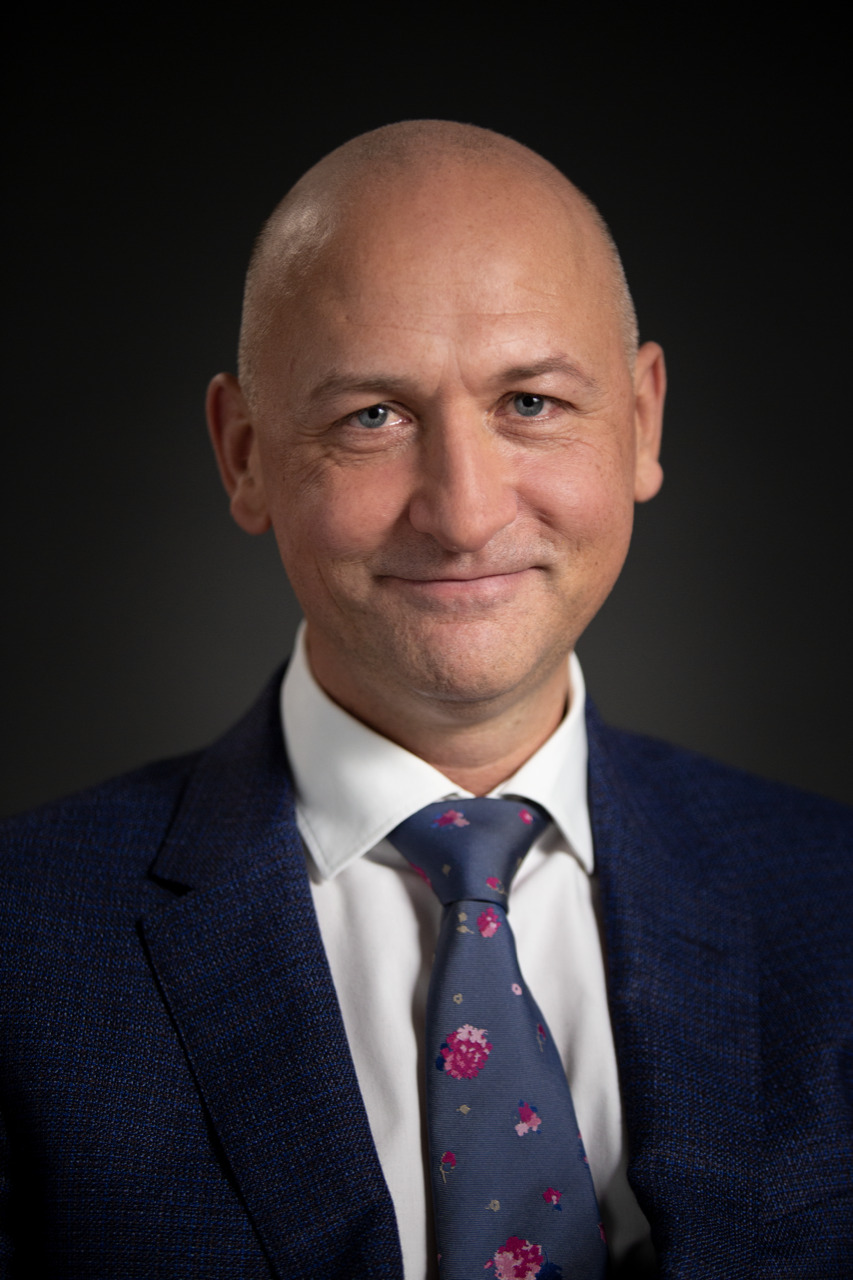
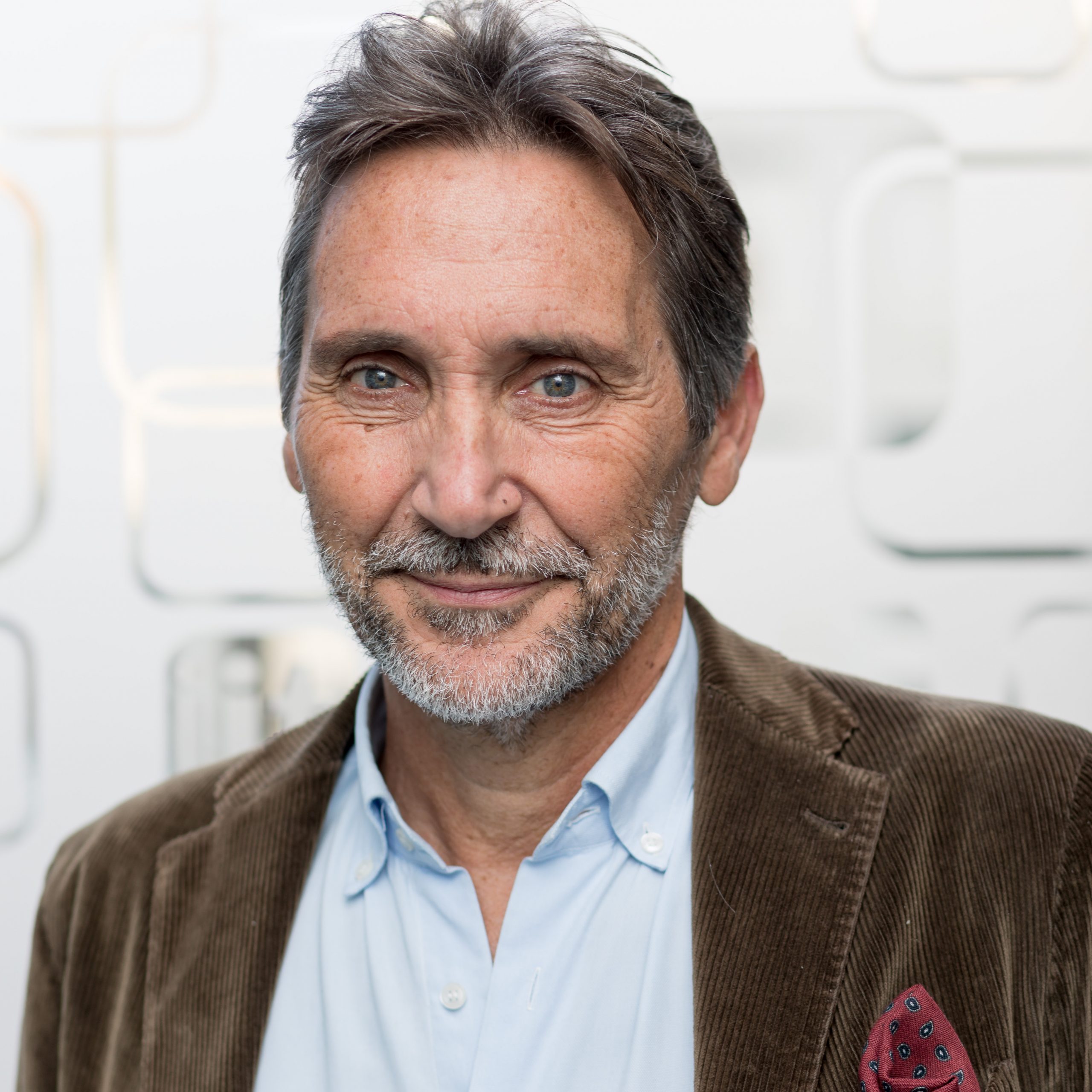
Antonio Bicchi
University of Pisa
Title: What Advances can Soft Robotics bring to Prosthetics and Rehabilitation?
Antonio Bicchi is a scientist interested in robotics and intelligent machines for human use. He received his Ph.D. from the Alma Mater Studiorum – University of Bologna, and was a postdoctoral fellow at MIT AI Lab, before becoming the first Professor of Robotics at the University of Pisa. In 2009 he founded the Soft Robotics Laboratory at the Italian Institute of Technology in Genoa. Since 2013 he cooperates with Arizona State University as adjunct Professor. He has coordinated many international projects, including four grants from the European Research Council (ERC).
He has authored over 500 scientific papers cited more than 25,000 times. His main contributions are in the field of analysis of grasping and manipulation, the design of soft and variable stiffness hands and limbs, and their control for both robotics and prosthetic applications. He supervised over 70 doctoral students and more than 20 postdocs, most of whom are now professors in universities and international research centers, or have launched their own spin-off companies. His students have received prestigious awards, including four first prizes and two nominations for the best Ph.D. Thesis on Robotics and Haptics subjects. He is a Fellow of IEEE since 2005, and the recipient of the 2018 Saridis Leadership Award.
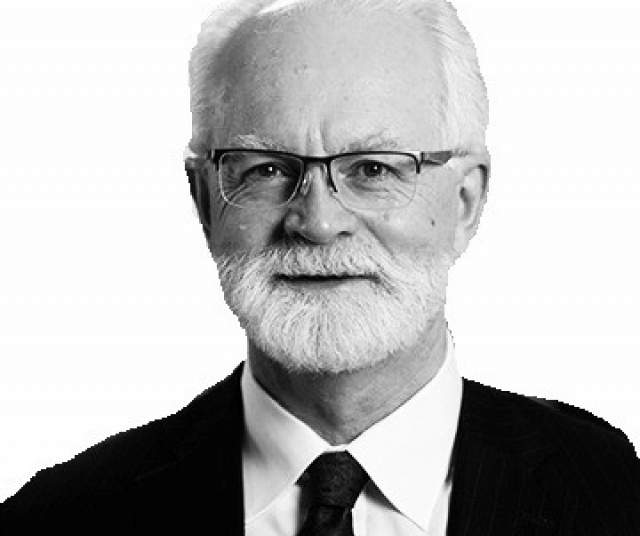
Julius Dewald
Northwestern University
Dr. Julius Dewald is co-director of the Shirley Ryan AbilityLab C-STAR clinical core. In addition, he is Northwestern University Feinberg School of Medicine chair, Department of Physical Therapy and Human Movement Sciences and professor of Physical Therapy and Human Movement Sciences, McCormick School of Engineering and Physical Medicine and Rehabilitation.
Levi Hargrove
Director, Regenstein Center for Bionic Medicine
Shirley Ryan AbilityLab (former Rehabilitation Institute of Chicago)
Arun Jayaraman
Executive Director of the Technology & Innovation Hub (tiHUB) and Director of the Max Naader Center for Rehabilitation Technologies and Outcomes Research at SRAlab
Richard Lieber
CSO and Senior Vice President of Research. CSO and Senior VP of Research for the Shirley Ryan AbilityLab
Rick Lieber is a physiologist who earned his Ph.D. in Biophysics from U.C. Davis developing a theory of light diffraction that was applied to mechanical studies of single muscle cells. He joined the faculty at the University of California, San Diego in 1985 where he spent the first 30+ years of his academic career, achieving the rank of Professor and Vice-Chair of the Department of Orthopaedic Surgery. He received his M.B.A. in 2013 and is currently Chief Scientific Officer and Senior Vice President at the Shirley Ryan AbilityLab and Professor of Physical Medicine & Rehabilitation and Biomedical Engineering at Northwestern University in Chicago, IL.
Dr. Lieber’s work in intentionally translational, applying basic scientific principles to help patients who have experienced spinal cord injury, stroke, musculoskeletal trauma or cerebral palsy. He has published almost 300 articles in journals ranging from the very basic such as The Biophysical Journal and The Journal of Cell Biology to clinical journals such as The Journal of Hand Surgery and Clinical Orthopaedics and Related Research. Dr. Lieber’s research focuses on design and plasticity of skeletal muscle. Currently, he is developing state-of-the-art biological and biophysical approaches to understanding muscle contractures that result from cerebral palsy, stroke and spinal cord injury.
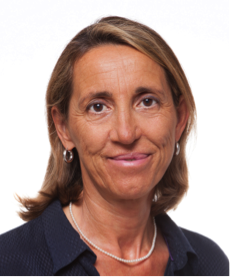
Donatella Mattia
Fondazione Santa Lucia, IRCCS, Italy
Prof. Donatella Mattia (MD, Neurologist, PhD in Neurophysiology of Movement Disorders, University of Rome “Sapienza”). She started her research career at the Montreal Neurological Institute McGill University, (Montréal Québec, Canada) focusing on in vitro electrophysiology of the cerebral/hippocampal cortex in animal models of epilepsy and human epileptic neocortex. She currently leads the Laboratory of NeuroElectrical Imaging and Brain Computer Interfaces at Fondazione Santa Lucia, IRCCS, Rome. Research interests are focused on clinical trial-validation of the EEG-based BCI technology as rehabilitation (mainly post-stroke) and assistive (severe ABI and disorders of consciousness) tool and on neurophysiological (EEG) signature of human motor and cognitive function/disfunction. Within these areas, she has (co)-authored more than 200 papers published in peer-reviewed journals. She was/is the scientific responsible in several national and EU projects all within this BCI translational research framework. She serves as reviewer for several scientific journals and international grant agencies; since 2019 she is Associated Editor of Frontiers in Neuroscience-BCI subspecialty. Since 2017 she is elected member of the BCI society board.
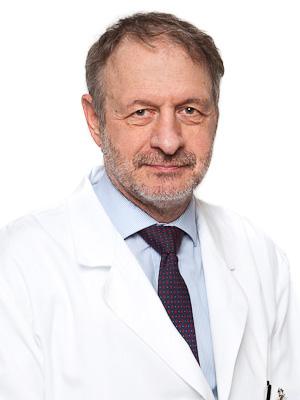
Marco Molinari
Fondazione Santa Lucia
Title: The Spinal Brain – Brain/spinal interactions for functional recovery after SCI
Abstract: Spinal cord injury (SCI) affects both ascending and descending tracts between the brain and the spinal cord leading to long-term disability. In the last decade our knowledge in brain and spinal cord plasticity mechanisms has improved enormously nevertheless this still has little impact on our capacity to improve recovery. Most of SCI research focuses on spinal cord either addressing mechanisms of insult/damage or recovery mechanisms. A minority of studies pioneered the idea that spinal insult do not only affect the medulla but also sovraspinali structures. In spite of the intensive research on spinal recovery mechanisms and the efforts to identify innovative herapeutic strategies , recovery after SCI still heavily relay on brain capacity to cope for spinal damage and brain circuits represent a useful target for intervention to boost recovery after SCI.
Recent data on SCI induced brain changes and proposal of BCI approaches to boost recovery after SCI are presented.
Dr. Marco Molinari (Neurologist, Physical medicine and rehabilitation specialist, PhD in Neuroscience) is the Director of Neurorehabilitation Translational Research and Clinic 1 Spinal Center at IRCCS Fondazione Santa Lucia, Rome. The Department integrates Neuroscience research and clinical neurological rehabilitation units. The clinical ward is devoted to rehabilitation of patients with brain or spinal cord lesions in a a multidisciplinary environment. Research activity span from basic science approaches in animal models to development and testing of new rehab approaches in humans. Dr. Molinari is author of over 250 articles published on indexed journals. SCOPUS H-index 59. He is Review Editor of The Cerebellum. Research activity has been always focused on brain plasticity mechanisms and functional recovery both at basic science and clinical levels.
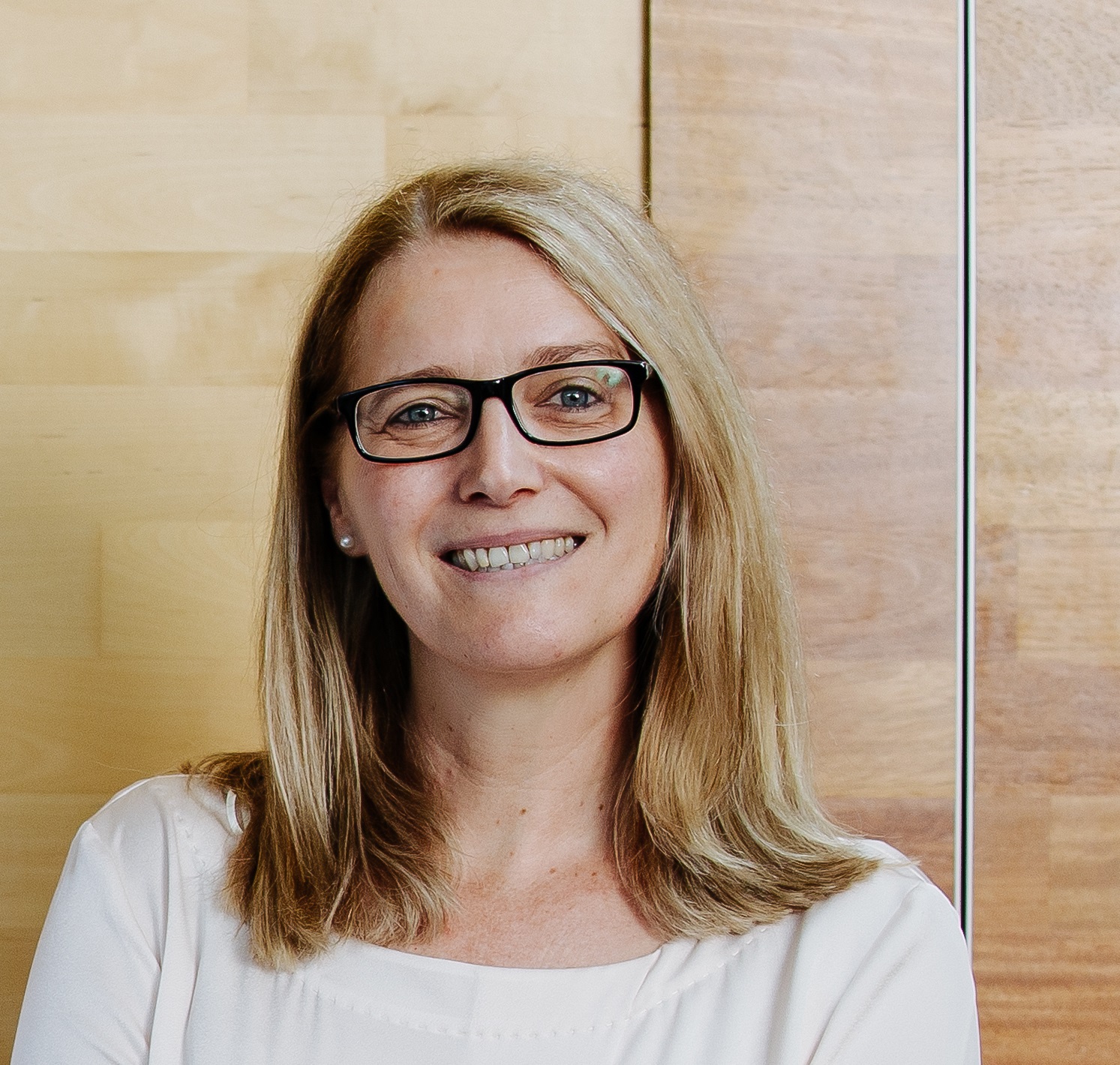
Natalie Mrachacz-Kersting
Albert-Ludwigs University Freiburg
Title: BCI applications: Thinking out of the box!
Abstract: In the last few decades, innumerable new neurophysiological methods have been developed with which the anatomy and physiology of the nervous system can be examined and changed. These include transcranial magnetic and electrical stimulation methods as well as brain-computer interfaces. In particular the latter are increasingly used in therapy and rehabilitation. But what is really behind these techniques? And can they be implemented to improve athletic performance, to support Paralympic athletes or even to reduce musculoskeletal pain? In this talk I will examine the concepts and scientific foundations of BCIs designed for those out of the box neurorehabilitation applications that have received little attention to date.
Professor Natalie Mrachacz-Kersting received her PhD in Biomedical Science and Engineering from The University of Aalborg, Denmark in 2005 and held several post-doc positions at the University of Auckland, New Zealand and Aalborg University, Denmark.
From 2007 she was Associate Professor at the Center for Sensory-Motor Interaction, Aalborg University, and in 2019 Professor in Neuroscience and Medical Technologies at the University of Applied Sciences and Arts Dortmund, Germany. Since June 2021 she is full Professor in Neuroscience at the University of Freiburg. Her research focuses on neurorehabilitation technology, and neural control of movement. Within these areas, she has (co)-authored approximately 80 papers in peer-reviewed Journals and >150 conference abstracts and papers. She was the recipient of the International Award in Brain-Computer-Interfaces in 2017 and has received several prestigious grants from the Innovation Fond of Denmark, Kong Christian den Tiendes Fond, Lundbeck Fond and the Obel Family Foundation of Denmark. She is currently Board Member of the BCI Society and Associate-Editor of several journals including Brain-Computer-Interfaces, Transactions on Neural Systems and Rehabilitation Engineering, the Scandinavian Journal of Medicine and Science in Sports and Brain-Computer Interfaces – specialty section of Frontiers in Human Neuroscience.
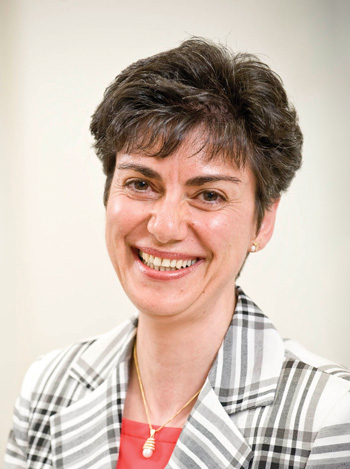
Vivian Mushahwar
University of Alberta
Dr. Mushahwar is a Professor in the Division of Physical Medicine and Rehabilitation. An engineer by training (electrical), Dr. Mushahwar obtained her Ph.D. in biomedical engineering from the University of Utah. Research in the Mushahwar lab focuses on many aspects such as the restoration of standing and walking after spinal cord injury and the detection and prevention of deep tissue pressure sores using functional electrical stimulation (FES) techniques. The Mushahwar lab is working with other groups of the Project SMART team to develop implantable devices that utilize intraspinal microstimulation (ISMS) to stimulate the “control centre” for standing and stepping in the spinal cord and thereby restore this ability after spinal cord injury. In addition, in collaboration with researchers in the Stein, Chan, and Dukelow research groups, Mushahwar’s lab is developing a garment to detect and prevent the onset of pressure sores in wheelchair and bed ridden patients.
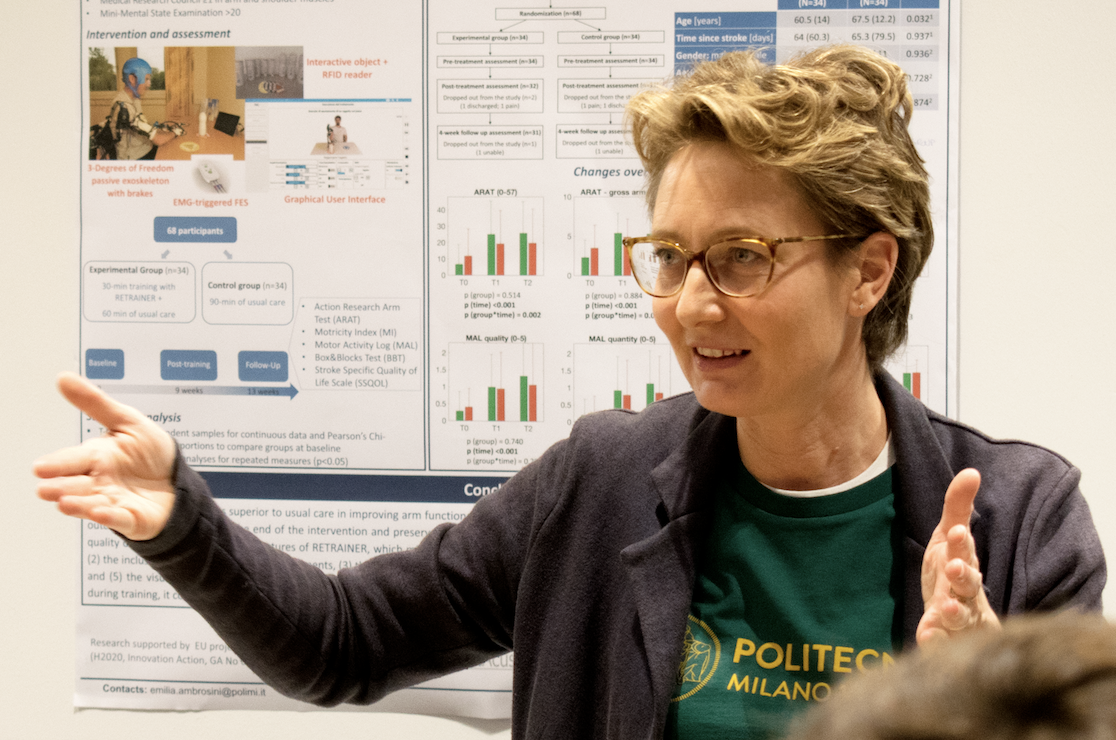
Alessandra Pedrocchi
Full Professor at the Politecnico di Milano
Title: Hybrid systems integrating neuroprosthetics and robotics in neurorehabilitation
Alessandra Pedrocchi (MSC in Electronics Eng.; PhD in Bioeng) is currently full professor at the Department of Electronics, Computer Science, and Bioengineering of the Politecnico di Milano, where she teaches Neuroengineering and Biomedical Instrumentation. She is one of the founders of the Nearlab, the NeuroEngineering And Medical Robotics lab, where, she has overseen the Neuroengineering section (www.nearlab.polimi.it). Since 2019 she has been one of the founders of the interdepartmental laboratory “WE-COBOT LAB Wearable and collaborative robotics Laboratory”. Alessandra’s research interest is neuroengineering, including biomechanics in motor control, neurorobotics, new technologies for neurorehabilitation, with particular emphasis on the control systems and Human-robot interfaces of exoskeletons for rehabilitation and assistive devices, neuroprostheses, and the study of the correlation between brain plasticity and functional recovery. She has coordinated various research projects funded by national private foundations (Fnd. Cariplo and Fnd. Telethon), European commission, NIH, national ministry of research, and Regione Lombardia, and in collaboration with INAIL. She is director of the POLIMI master on “RehabTech: Technologies for innovation in Rehabilitation Medicine and for assistance” (www.rehabtech.polimi.it). She is one of the founders and holds shares of Agade (www.agade.eu), a spin-off company working in the field of exoskeletons for industrial applications.
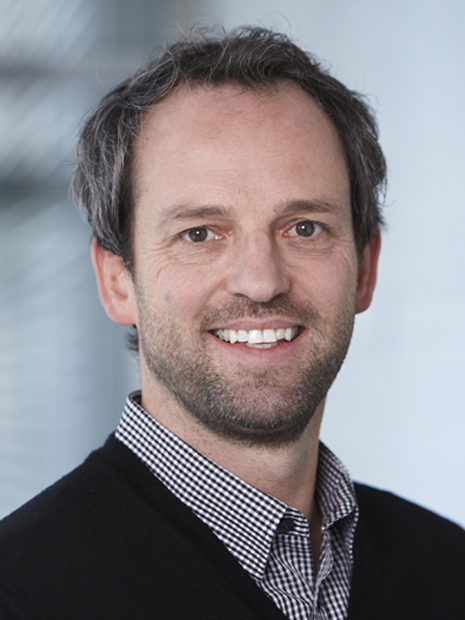
Robert Riener
Full Professor for Sensory-Motor Systems at the Department of Health Sciences and Technology, ETH Zurich
Robert Riener studied mechanical engineering at TU München and University of Maryland, USA, from 1988 till 1993. He received the Dipl.-Ing. degree and the Dr. degree from the TU München in 1993 and 1997, respectively. In 1993 he joined the Institute of Automatic Control Engineering, where he has pursued research into neuroprosthetics. After postdoctoral work at the Centro di Bioingegneria, Politecnico di Milano from 1998 to 1999, he returned to the TU München, where he finished his Habilitation in the field of Biomechatronics about multi-modal VR applied to medicine in January 2003. Since his activity in Zurich Riener develops robots and interaction methods for motor learning in rehabilitation and sports.
His current research interests involve human motion synthesis, biomechanics, virtual reality, man-machine interaction, and rehabilitation robotics. He authored and co-authored more than 400 peer-reviewed journal and conference articles and 24 patents. He is a member of several scientific societies (e.g., IEEE/EMBS, DGBMT/VDE, IFESS) and an associate editor of several scientific journals. For his development of the arm therapy robot ARMin, he was awarded with several prizes including the humanTech Innovation Prize and the Swiss Technology Award. He was awarded also with the IEEE TNSRE Best Paper Award 2010 and the euRobotics Technology Transfer Awards 2011 and 2012. Riener is initiator and organisator of the CYBATHLON, which was honored by the European Excellence Award and the Yahoo Sports Technology Award. In 2018 Robert Riener received an honorary doctoral degree from the Medical Faculty of the University of Basel. Robert Riener is represented by VBQ Speakers for non-academic speaking engagements.
Shingo Shimoda
Unit Leader for the Intelligent Behavior Control Lab, RIKEN Center for Brain Science
Shingo Shimoda is a Unit Leader in Intelligent Behavior Control Lab, RIKEN Center for Brain Science TOYOTA collaboration Center. He received his Ph.D. in Space Robotics from the University of Tokyo, Japan, at 2005. He was a visiting student with the Massachusetts Institute of Technology, USA, from 2003 to 2004. He was a Research Scientist in biomimetic intelligence at RIKEN from 2005 to 2007. In 2008, he became a Unit Leader in RIKEN Brain Research Institute in biomimetic intelligence and cognitive systems. He is a principal chair of Technical Committee on Cognitive Robotics in IEEE Robotics and Automation Society and Steering
committee member of IEEE Transactions on Cognitive and Developmental systems.
His research interest is clarification of the biological control system and its application for robot control and rehabilitation system. Through space robot research, we should create an artificial intelligence that can adapt the behaviors to unknown environments through body-environment interactions, and brain control is one of the key examples for the artificial intelligence. He proposed novel learning architecture called Tacit Learning based on brain control principles and applied it to the humanoid robot control, control of human motion support devices and understanding of recovery process in rehabilitation.
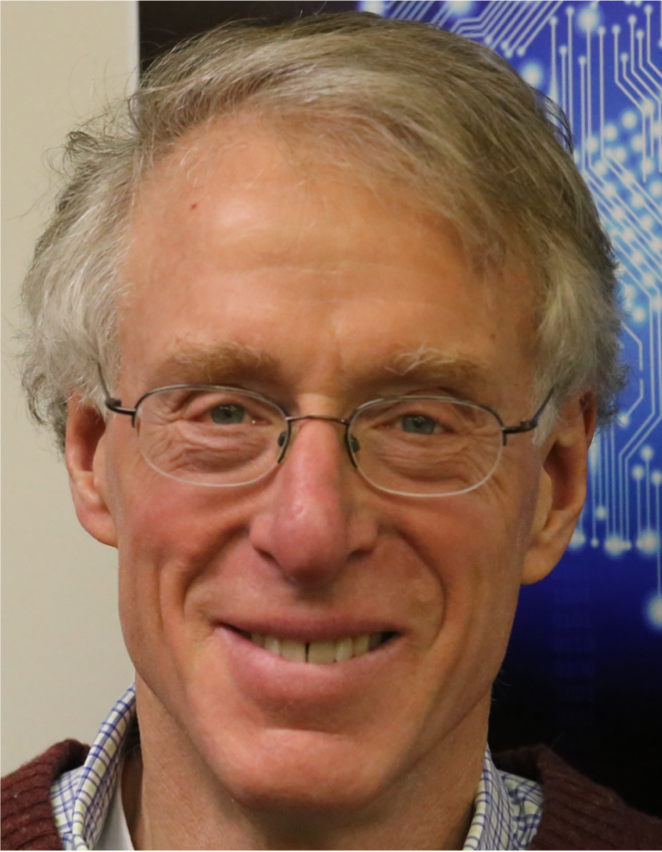
Jonathan R. Wolpaw, M.D.
Director, National Center for Adaptive Neurotechnologies
Albany Stratton VA Medical Center and State University of New York
Albany, New York, USA
Title: Neurorehabilitation in the 21st Century: Enabling Heksors & the Negotiated Equilibrium They Create
Dr. Wolpaw is a neurologist who has devoted nearly 50 years to basic and clinical research. His group developed operant conditioning of spinal reflexes as a model for defining the plasticity underlying learning, and went on to show that this conditioning can improve walking in animals and people with spinal cord injuries. This work introduced the new therapeutic method of targeted neuroplasticity. His group also guided development of brain-computer interface (BCI) principles and methods and is exploring BCI use to improve neurorehabilitation. Most recently, in response to the growing appreciation of the lifelong plasticity of the CNS, he led formulation of a new paradigm for understanding how useful behaviors are acquired and maintained through life, a paradigm based on the new concepts of heksors and the negotiated equilibrium of CNS properties that heksors create. His group has been supported throughout by NIH, the VA, and private foundations; their work has been recognized by many national and international awards.
More information will be published soon.



